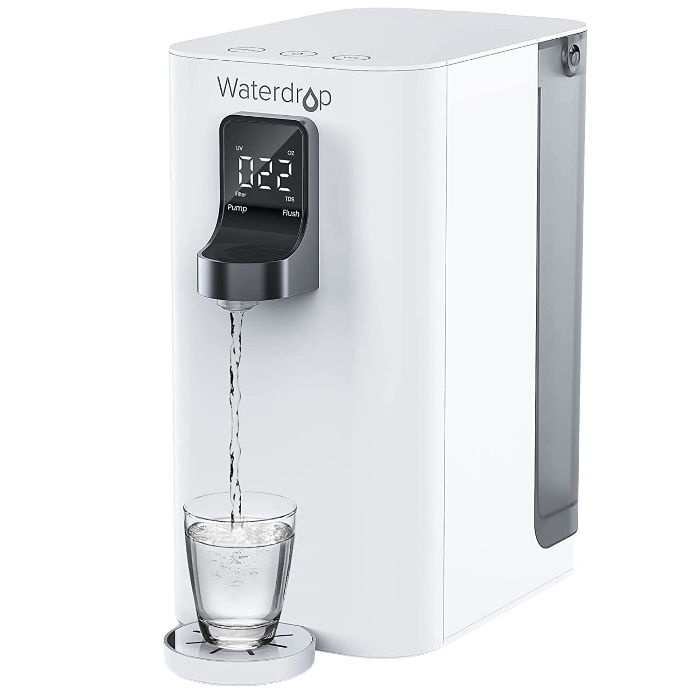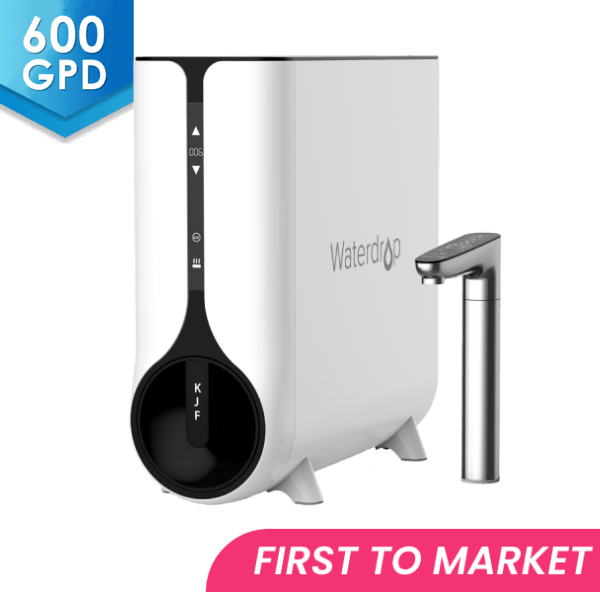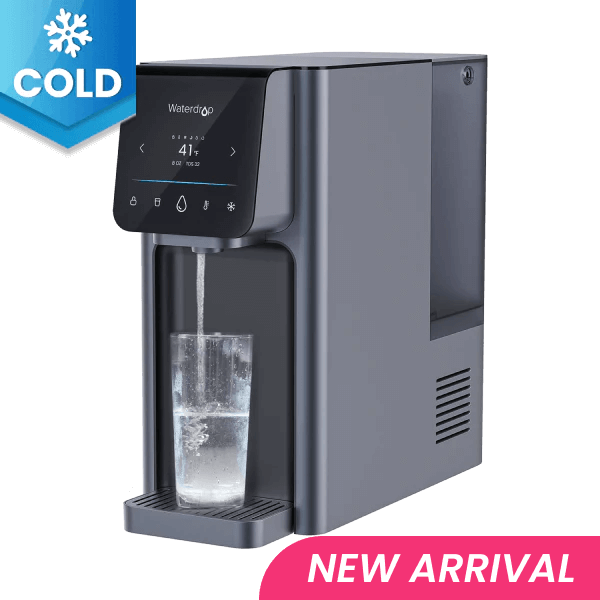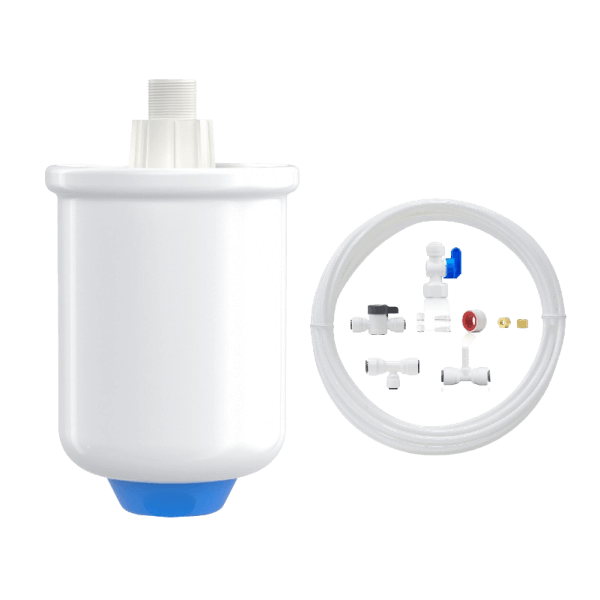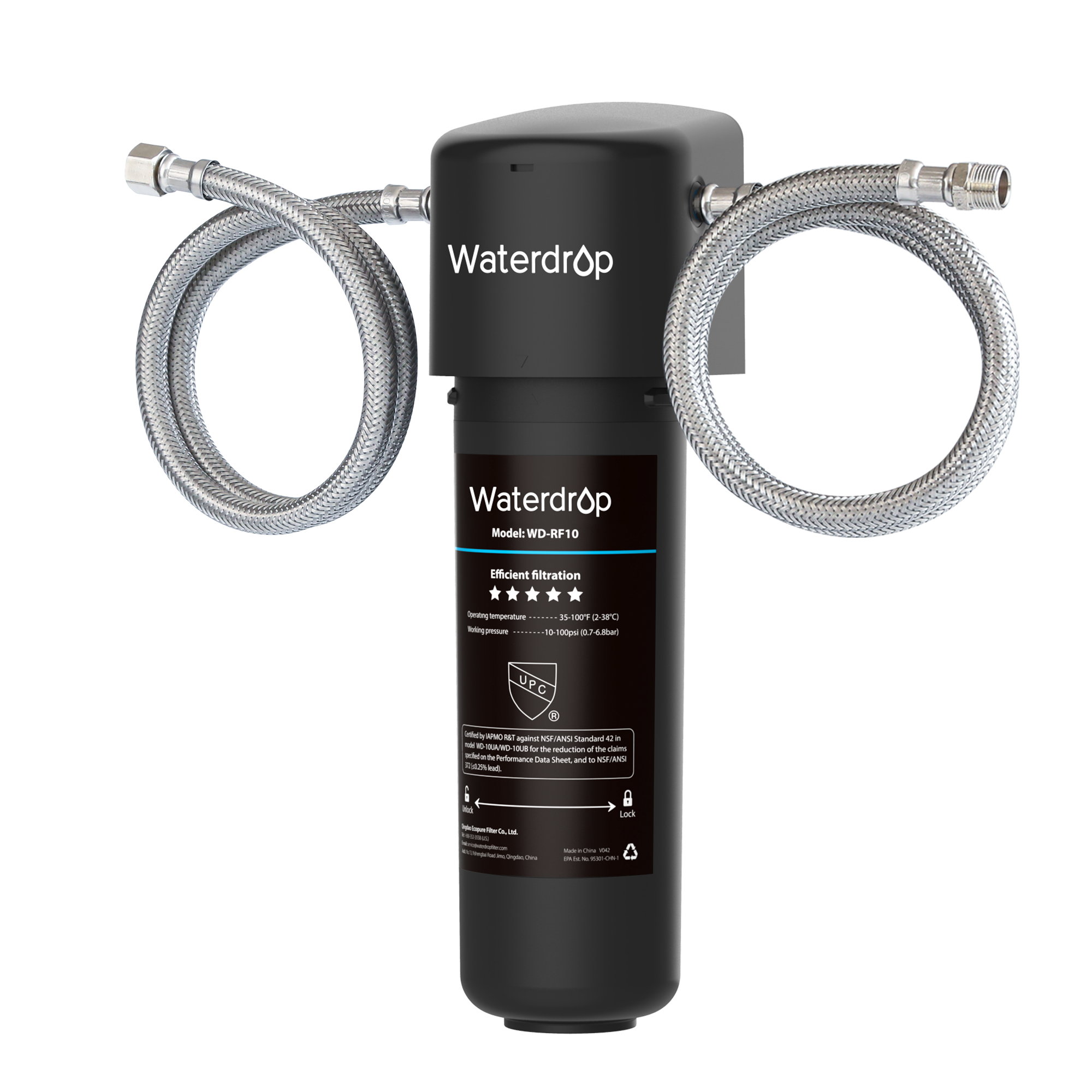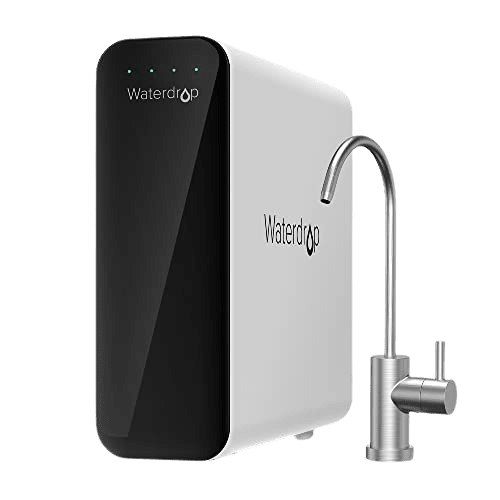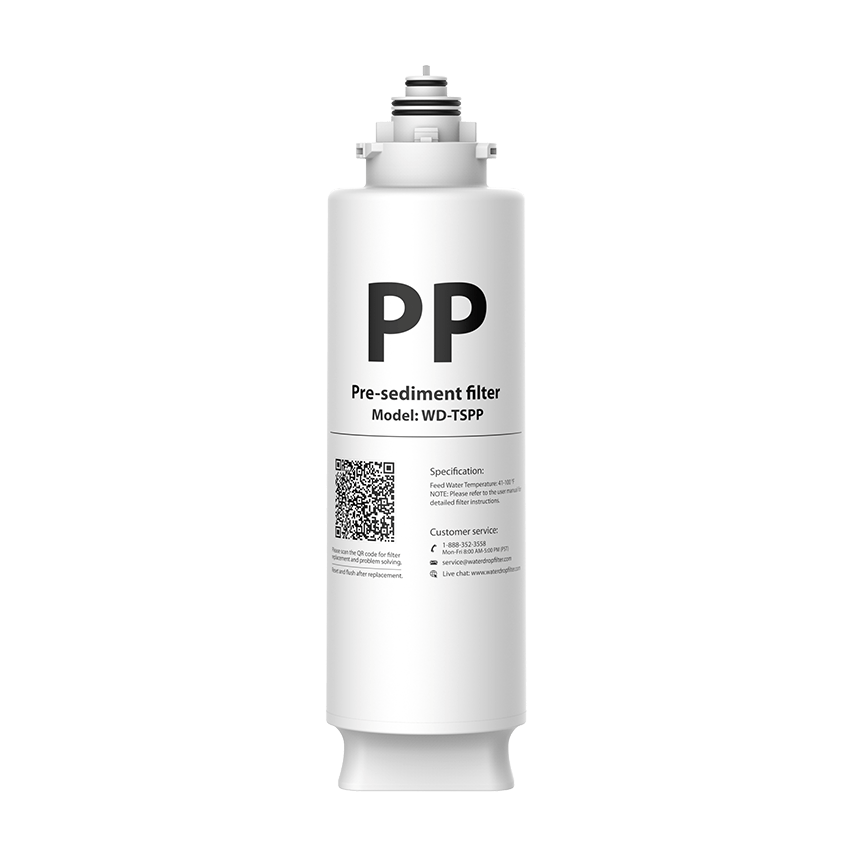Refrigerator Water Filter for a Medium-Sized Family
由 Dr. Jonathan Doyle - Updated August 06, 2020
What's the right refrigerator water filter for a medium-sized family? Waterdrop has your breakdown right here!
Every family drinks quite a bit of water every day, and much of it is consumed by way of cooking. We all understand that water needs to be clean and free of impurities in order to maximize its benefits, but removing these problematic substances can also protect people from potential short and long-term health risks. Over the years, people in general have changed their approach to how they consume water in the home. For generations, tap water was seen as a fine choice, but over time, infrastructures began to break down and impurities began to find their way into our drinking water.
That prompted families to look elsewhere, and that led to the introduction of delivery services that provide clean drinking water at regular time intervals and, of course, water was sold in enormous amounts in plastic bottles. Recently, environmental concerns have emerged with regards to bottled water, but it's still sold in staggering volumes. EcoWatch published a report in 2017 that showed that consumers purchase approximately 1 million plastic bottles of liquid per minute around the world, or 20,000 bottles per second. Not all of these bottles contain water, but most would agree that this is not a good option for the planet for obvious reasons.
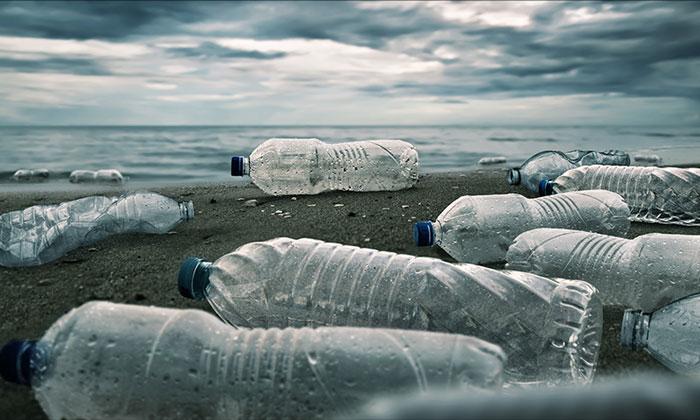
So where do families turn for healthy, clean and good-tasting drinking water? These days, more and more people are turning to refrigerator water filters, as they can provide the clean water people need without creating an enormous amount of waste. Refrigerator filters tend to help people avoid the expense and management of delivery services and it's always available as long as the refrigerator is working. So how do you decide on a nice refrigerator water filter for your family? Does the right refrigerator brand overall have anything to do with it, or is determining the water filter based on a completely different analysis?
The bottom line in this regard is that there is no singular answer with regards to the right refrigerator water filter for a family. Waterdrop has been providing refrigerator filters to homes and businesses for years, and below we'd like to offer some guidance in terms of what to look for and how to decide on the right refrigerator water filter for your needs and expectations.
Are manufacturers' refrigerator water filters effective?
The majority of new refrigerators that offer water from the unit itself come with some sort of water filter. While this is an improvement from years ago when this option was rare, that doesn't mean that all manufacturers' refrigerator filters are the same or that all of them are necessarily effective. While refrigerator filters generally do what they're supposed to do, one of the problems with them is that every location is a bit different in terms of the types of contaminants in its local water supply. The impurities you'll find in tap water in New York are going to be different than those found in Wichita, Chicago or Dallas.
Manufacturers' refrigerator filters are engineered to deal with the most common impurities that can be found in almost any location, and these impurities include:
- Chlorine
- Radon
- Benzene
- Lead
Unfortunately, this is far from an exhaustive list of substances that can be found in tap water. Just a few examples of other common substances that are found in water around the United States include:
- Arsenic
- Chromium
- Fluoride
- Copper
- Mercury
- Selenium
Any of these substances can make a person sick, and they often do. According to the United States Centers for Disease Control and Prevention, or the CDC, between 4 and 32 million people become sick from waterborne illnesses in the United States every year. That's an estimate, but that only deals with public water drinking systems. Therefore, it's clear that more needs to be done to cleanse drinking water than what refrigerator water filters offer in general.
What's in my local water?
Given that manufacturers' refrigerator water filters have their limits in terms of effectiveness, the next step for any family that would like to drink water in a safe, healthy and environmentally friendly way is to find out what's actually in your local tap water. After all, even the best water filters are going to be forced to deal with whatever tap water comes through their systems. This may seem like an impossible task, but several groups have come about recently and provided consumers with helpful guides to let them know what they may be drinking.
The Environmental Working Group, or EWG, is one such entity. It provides a guide for people who want to know what's in their water. All you need to do is enter your zip code and click through to find out what's problematic in your area. For example, if you enter the zip code for the Lower East Side of Manhattan, which is 10002, you'll find 9 of the 16 total contaminants found in that tap water exceed EWG's internal health guides. These contaminants include:
| Substance | Amount exceeding EWG guideline | Potential hazard |
| Bromodichloromethane | 76x | Cancer |
| Bromoform | 5.7x | Cancer |
| Chloroform | 76x | Cancer |
| Chromium | 2.1x | Cancer |
| Dibromochloromethane | 4.3x | Cancer |
| Dichloroacetic acid | 4.3x | Cancer |
| Haloacetic acids (HAA5) | 361x | None listed |
| (TTHMs) | 253x | Cancer |
| Trichloroacetic acid | 214x | Cancer |
For the sake of comparison, below you'll find the breakdown for zip code 90210, or Beverly Hills, California, where 8 substances exceed the EWG's limits:
| Substance | Amount exceeding EWG guideline | Potential hazard |
| Arsenic | 520x | Cancer |
| Bromate | 13x | Cancer |
| Chromium | 43x | Cancer |
| Haloacetic acids (HAA5) | 105x | None listed |
| Nitrate | 13x | Cancer |
| Nitrate and Nitrite | 8.8x | Cancer |
| (TTHMs) | 189x | Cancer |
| Uranium | 7x | Cancer |
As you see, when it comes to comparing the contaminants found in the tap water between Manhattan and Beverly Hills, only three appear in both. Different areas have different problems with their tap water, and you should find out what's happening with yours before moving closer to deciding which is the right refrigerator water filter for your family.
In deciding on the right refrigerator water filter for your family, you'll need to do some research to see which models effectively handle which types of contaminants. After all, refrigerator filters that are designed to remove the contaminants found in Manhattan may not necessarily work nearly as well in Beverly Hills.
If you would like a detailed, specific water report on your location, you can also work with Waterdrop. Simply click here to provide some basic information, and within 48 hours you will receive your report. You absolutely need to know what you're consuming and what your family is drinking before you decide on next steps.
What's the most cost-effective refrigerator water filter?
The next idea to consider when searching for the proper refrigerator water filter for your family involves the cost involved. Obviously, refrigerator filters cost money in addition to what you may have already spent on the refrigerator brand you could find for your needs, but that doesn't mean that this small additional investment isn't worth it. For support of that argument, simply see the information above.
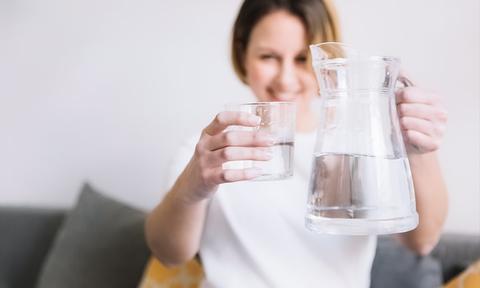
Once again, there are general guidelines for refrigerator filters, but every individual situation is somewhat different. Overall, experts recommend that you change your refrigerator water filter at least every six months, as that's about the time that they start to break down a bit and allow more impurities to get to your glass or cooking pot. However, it's more involved than that, because some families use drinking and cooking water in much higher volumes than others.
In addition, this recommendation of six months is generalized to identify with the average amount of water the average person consumes in an average household. That notwithstanding, there are models and manufacturers out there whose refrigerator filters vary widely in terms of how many gallons they can safely handle. Some refrigerator filters need to be changed as quickly as with 200 gallons of water, while others last for up to 750 gallons.
Determining how much water you use from your refrigerator can require a bit of work, but once again it may be worth it given the potential benefit of finding the proper refrigerator water filter for your family's needs. One potential exercise to uncover this information appears below:
- Assign each family member a glass for the day.
- Determine the number of ounces each glass holds.
- Ask each family member to mark down every glass of water they drink.
- Make notations for the amount of water used for cooking.
- Add the total amount at the end of the day and extrapolate that going forward.
If your family goes through, for example, three gallons of water on an average day, then you may want to consider a refrigerator water filter that can handle a higher volume. That's because a 200-gallon filter will lose its effectiveness within 60 – 70 days, or a far shorter period of time than six months. That would mean that your family would be consuming potentially contaminated water for up to four months without realizing it. In addition, this would leave you with two choices:
- Purchase a new refrigerator water filter every two months;
- Purchase a refrigerator water filter that has a much higher volume capacity.
Taste is still important
Finally, all the research on the best refrigerator water filter for your family in the world isn't going to do you much good unless you take into account the actual taste of the water. After all, if the water doesn't taste good coming from the filter, your family is not going to consume it. We encourage you to research this topic and to take the reviews you find regarding refrigerator filters into account. Unfortunately, that's the best you can do for the most part as you won't be able to do an actual taste test before you try the filter on your refrigerator.
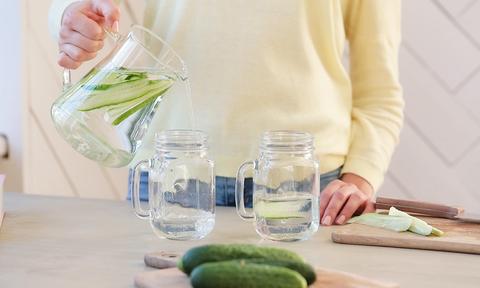
However, it should be noted that many refrigerator filters will need to be flushed when they arrive, as that's going to help remove any dust or other particles that may have found their way into your new water filter. These particles can and often do affect the way your water will taste and smell. Generally speaking, 2 – 3 gallons should be enough water to flush the filter, and after that you should start to notice a better taste and smell.
In addition, you should do some research on: (a) how many different types of filters are available for your refrigerator model and (b) whether the organization you purchase your water filters from offers some type of return/exchange option before you place your order. This should help provide you with that “taste test” you may need. You should also keep in mind that even if a refrigerator water filter is flushed and working properly, it could still lead to a slightly different taste than what you're used to experiencing. That isn't necessarily bad unless it's unpleasant, but there is a difference between different and undrinkable.
Let waterdrop help you out
Even though it's a relativelysmall item that doesn't necessarily come with a large financial cost upfront, your choice of water filter is critically important for you, your family, your pets and anyone else who will be drinking from your plumbing. Most people understand that simply drinking from the tap is not a good idea and that continually purchasing bottled water is both expensive and harmful to the environment.
Waterdrop can help you find the suitable refrigerator water filter for your family if you need some assistance. We will work with you in terms of defining your expectations, needs and of course your ongoing consumption. We encourage you to browse our selection of refrigerator filters to get an idea of what may be right for you. If you would like more information, you should always feel free to contact us with any questions or concerns. Our team of professionals is ready to provide you with the answers you need so that you can drink water safely and enjoyably.




